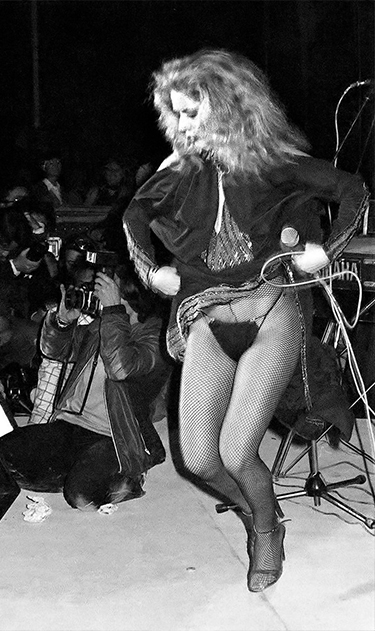As a singer, dancer and actor, the work of María Jiménez Gallego (Seville, Andalusia, Spain, February 3, 1950-September 7, 2023), went beyond the dimensions of music, making her a legend of the Spanish democratic transition and the process of the creation of the Autonomous Community of Andalusia. In 2003, she moved to Chiclana de la Frontera, where she received several awards. In recognition of her artistic work, she won the Gold Medal for Merit in Fine Arts from the Spanish Ministry of Culture and the Andalucía Excelente lifetime achievement award, among others.
Born in the neighborhood of Triana in Seville towards the end of the Franco regime, she faced hardship as a child and had to do humble work until she joined the flamenco tablaos of Barcelona and Madrid as an artist.
Nicknamed ‘La Pipa’, she released her first album in 1975. The following year, her second album was released, produced by Gonzalo García-Pelayo with arrangements by guitarist Paco Cepero. It includes versions of rumbas, tangos, bulerías, boleros, rancheras and ballads by Silvio Rodríguez, Lolita de la Colina and Amancio Prada. Her version of the latter’s song, Libre te quiero, based on a poem by Agustín García Calvo, became one of the musical references of the time and of the process of women’s liberation. She dared to be a single mother, although sadly her daughter, María del Rocío, was to die young.
In 1978 she released the album Se acabó, whose first single became a hit in Spain and Mexico thanks to its carefree lyrics about a woman who will no longer put up with mistreatment. She herself had suffered abuse in the past.
Her forte was always rumba, although she also performed other flamenco styles. During the 1980s, her fame and prestige grew through numerous recordings. Married to actor José Sancho, the tragic death of her daughter was a dramatic blow to her life and career, although she and the actor had a son, Alejandro, who went on to give her grandchildren.
In 2002, she returned to the recording studio and the stage with an iconic album, Donde más duele, in which she created new versions of songs by Joaquín Sabina, the singer-songwriter from Jaén, selling more than 600,000 copies at a critical moment for the record industry. Her living legend was supported by the group ‘Estopa’, with whom she sang El diario no hablaba de ti on the aforementioned album, and by ‘La Cabra Mecánica’, the group she accompanied in 2001 with La lista de la compra, which became a hit at that time.
At the start of the 21st century, she began to diversify her activity and appeared as a presenter of the program ‘Bienaventurados’, on Canal Sur Televisión, and as a judge in Se llama copla, on the same channel.
In 2002 she published her memoir Calla, canalla while maintaining her recording activity. In 2005, she presented her album Canta José Alfredo Jiménez, with versions of the most famous songs by the Mexican composer. In 2013 she recorded a duet with Manuel Orta and in 2019 another with Miguel Poveda. In 2020 she released the album La vida a mi manera, in which her music was reenergized in a statement of identity and survival in the face of a long list of adversities culminating in the breast cancer that would end her life, although not the energy and vital instinct that characterize her powerful legacy.
